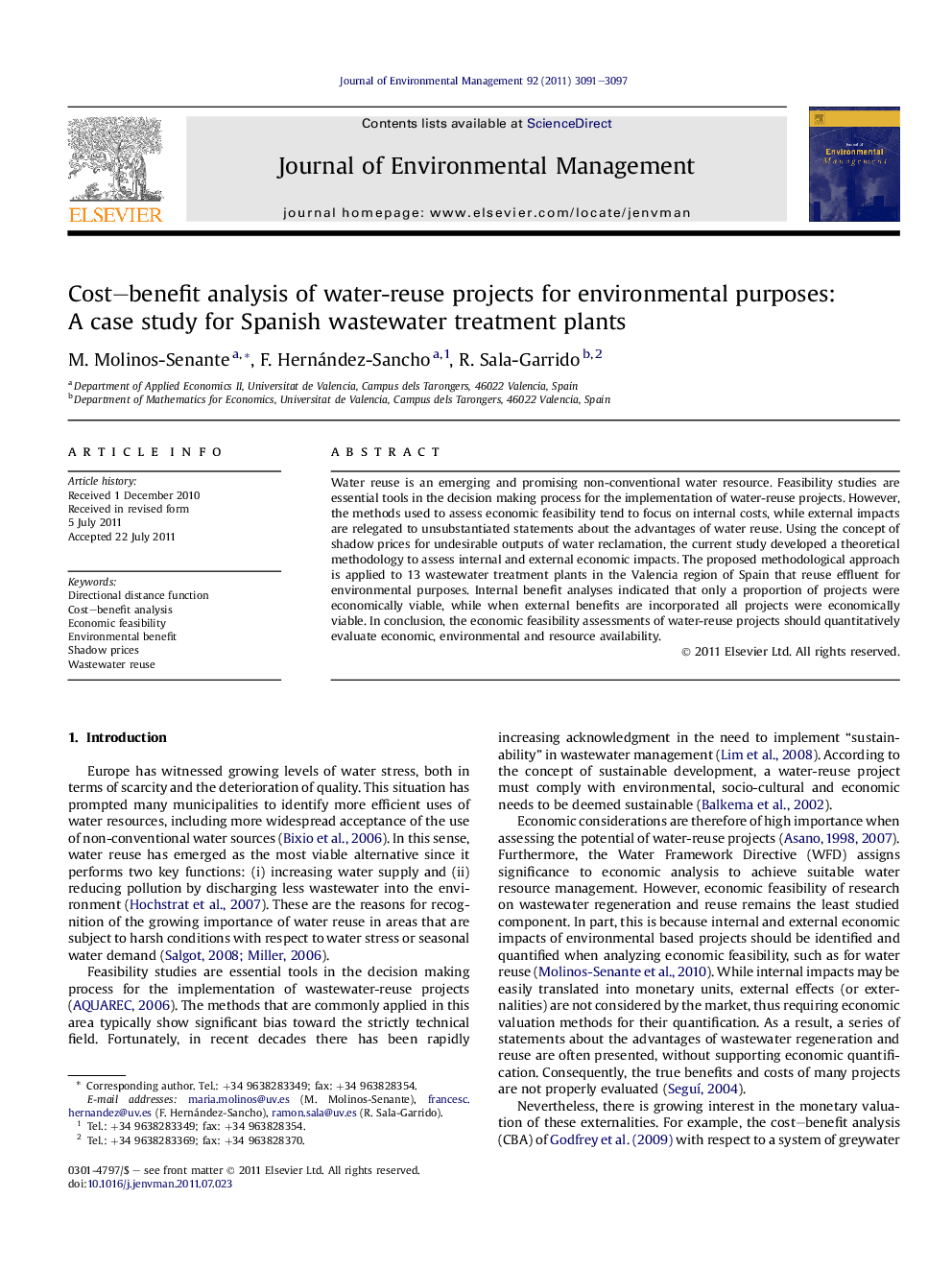| Article ID | Journal | Published Year | Pages | File Type |
|---|---|---|---|---|
| 1057112 | Journal of Environmental Management | 2011 | 7 Pages |
Water reuse is an emerging and promising non-conventional water resource. Feasibility studies are essential tools in the decision making process for the implementation of water-reuse projects. However, the methods used to assess economic feasibility tend to focus on internal costs, while external impacts are relegated to unsubstantiated statements about the advantages of water reuse. Using the concept of shadow prices for undesirable outputs of water reclamation, the current study developed a theoretical methodology to assess internal and external economic impacts. The proposed methodological approach is applied to 13 wastewater treatment plants in the Valencia region of Spain that reuse effluent for environmental purposes. Internal benefit analyses indicated that only a proportion of projects were economically viable, while when external benefits are incorporated all projects were economically viable. In conclusion, the economic feasibility assessments of water-reuse projects should quantitatively evaluate economic, environmental and resource availability.
► The shadow price methodology is a pioneering approach to quantify the environmental benefit associated with avoiding the discharge of pollutants. ► This approach is based on the directional distance functions and represents an alternative to conventional methods of economic valuation. ► The methodology proposed in this paper allows the assessment of external economic impacts of water-reuse projects. ► The economic valuation of externalities is a very relevant issue in order to carry out realistic feasibility studies of water-reuse projects.
